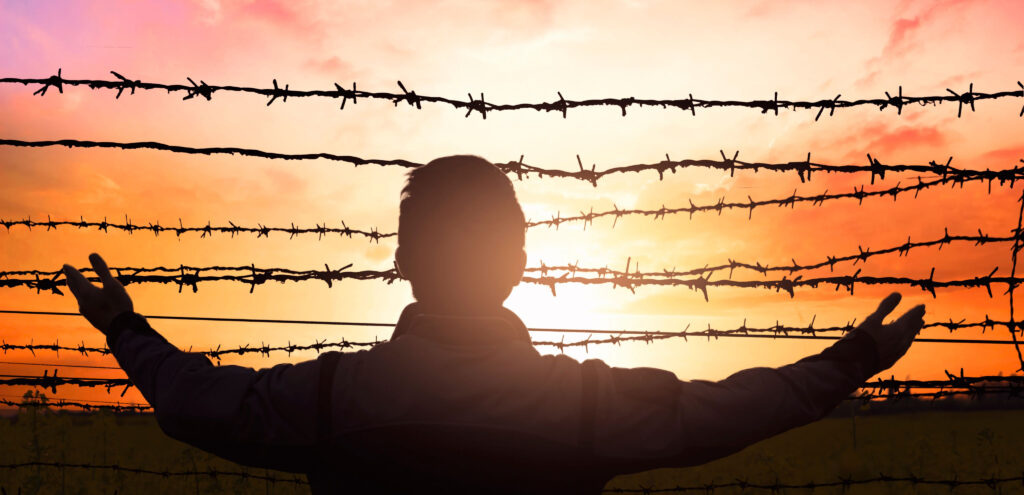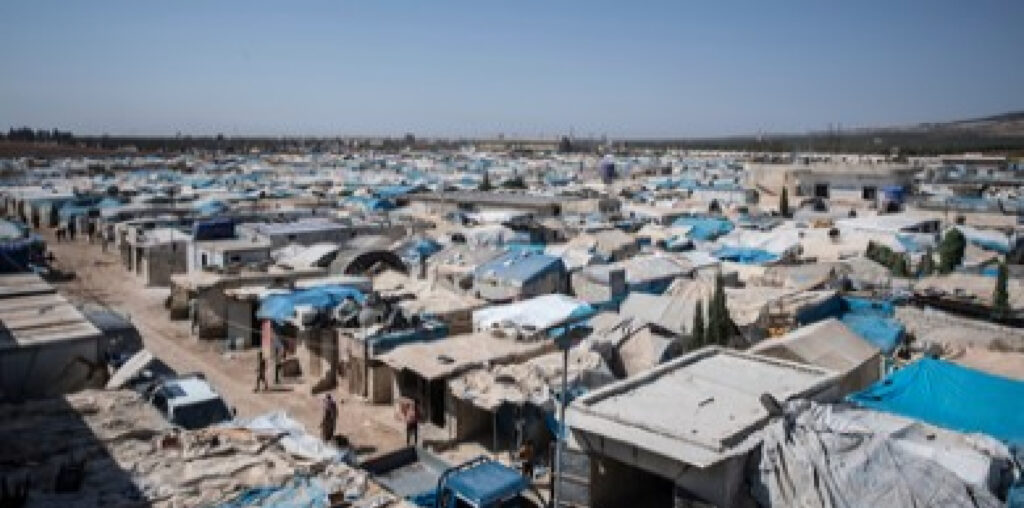
“Boys Will Be Boys”
Back in 1985, fresh out of law school, I was dispatched to Thailand by a U.S. human rights group. I went there to document a torrent of abuses against the 370,000 Cambodian refugees in camps dotting the Thai side of the border following the 1979 Vietnamese invasion of their country.
The savagery these souls faced took many appalling forms: murders, torture, beatings, rapes and robberies by the Thai soldiers assigned to protect them; similar mistreatment of Cambodians fleeing to the camps, carried out by their own countrymen belonging to rapacious resistance units fighting the Vietnamese occupation; vicious raids on the supposed places of refuge by gangs of Cambodian bandits, 20 to 30 strong; shelling of the camps by Vietnamese artillery based just across the border; and brutal, suffocating repression in the few sites controlled by the remnants of the genocidal Khmer Rouge regime, which had killed at least a million people during its 1975-79 reign of terror in Cambodia before the invasion forced their flight to the border.
Every day for over two weeks, I spent dawn to dusk interviewing as many victims as my Cambodian (non-refugee) interpreter/guide could find. At the end of the trip, in Bangkok, I met with a Thai general who dismissed the myriad atrocities with the glib observation that “boys will be boys.”

Memories of Nong Samet
That discussion was a doozy. But of all the refugees I talked to in the camps, one interview stood out in these houses of horror; the memory has stuck with me over the years…
It was nearly the end of the day in one of the sites, Nong Samet, with darkness descending, when a furious, feisty elderly woman rushed up to my interpreter and me. She’d heard that we were seeking victims to interview. We met with her and her 15-year-old granddaughter in a bamboo hut. The first thing that caught my eye was the circular, largely healed but incapacitating bullet wound in the girl’s wrist.
But that was not the most recent assault that she had suffered. A month earlier, a Thai soldier had viciously raped her, apparently as punishment for her going to a banned part of the area to get water. She described the crime through a sea of tears. The crippled hand, crushed spirit and brutalized body seemed to encapsulate the terrors visited upon her people.
At the end of the trip, I flew home on a Thai Airways flight, feeling shell-shocked by the interviews as I watched the bizarre double feature of Mozart and Rambo. Though I knew that the pain I felt was absolutely nothing compared to that of the Nong Samet girl and so many other refugees, I cried.
Press reports, colleagues and a good friend who worked for the United Nations along the border told me that my resulting report, along with many other types of pressure, helped induce Thai government action against the abuses. But I’m under no illusion that they all ceased before a peace treaty between the resistance groups and the Vietnamese-backed Cambodian government led to the camps’ closure in 1993.
What Does This Have to Do With Thanksgiving?
Why in the world am I recounting this sad story, from so long ago, on the cusp of Thursday’s happy holiday?
In one sense, it’s in response to a fine Nicholas Kristof op-ed in the November 16th New York Times. Having recently traveled to Ukraine, he tells tales of rape, torture and death, set against the canvass of Putin’s crimes against humanity there. He also testifies to Ukrainians’ remarkable determination to emerge from this barbarity triumphant – not just in terms of the war, but in terms of the human spirit.
The article’s illumination of individual Ukrainians’ suffering and courage triggered memories of both the Cambodians’ torment and the incredible fortitude of the people who endured such abuse. And it brought something else to mind…
Which is the real reason I’m writing this. Each year on Thanksgiving, we toast with friends and family. We’re thankful for what we have, as well we should be.
But we might also pause to be thankful for what we don’t have in America and other privileged nations: war, starvation, and the kinds of rampant barbarity documented by human rights reports and journalists’ dispatches. Even amidst societal injustices and the individual heartbreak we all experience at some point, we can appreciate the absence of ills that plague many other peoples. And perhaps pledge to take whatever small steps we can toward the cures.
As for me, on Thursday I’ll reflect on the post-it note I wrote some time ago and pasted on my desk, right by my laptop. I glance at the note every day. But I particularly value it when I’m feeling less than thankful and need a reminder about my own blessed lot in life.
It reads, “The Girl at Nong Samet.”
Thanks for this, Steve. It is a reminder that many others in other lands have suffered, are suffering, terrible abuses that we who enjoy relative safety and prosperity must not forget… even while we give thanks…
Thank you. Bev
Powerful, Steve.
I will think of this often.
The horrors of (in)humanity that you describe offer powerful perspective as we enter a holiday of reflection. Thank you for your important work in bringing these atrocities to light, Steve.
Phil
Dear Steve,
Thank you for your post. I often share A Promised Land with my family members near and far. What I so appreciate is that your critical insights are always interwoven with a spirit of kindness that celebrates our common humanity. Wishing you and Betty and your community of friends and colleagues a special Thanksgiving, Jenny (in Albuquerque, New Mexico0
The blog seems to have embarked upon a prolific phase, which is welcome…have enjoyed the movement from the upbeat local election account, to the springsteen-evoking piece on the election deniers in the time of climate change conventions (while being subtly distracted, as a reader, by turns of phrase that doffed a hat to other lyricists from popular music of the 1900s, roped in shakespeare, and cast a gossamer-net of changing seasons into the main text), to the current most sobering reminder of things humanity has done, and which, as you so rightly say, we should be thankful to have kept at bay.
Impactful work, Steve!
In Admiration.
I’m very thankful for all of your comments, folks. Have a happy, healthy holiday!
Thank you for this reminder. Just yesterday, I had a conversation with the wonderful Filipino woman who takes care of me once a month, doing all of the work I can no longer do, being disabled. Both she and her husband were educated as architects in their home country, and she cleans houses here to support her family. They have built a new home in the Philippines for their eventual retirement and I asked her if she is anxious to see her new home, as everything has been done while she lives here. She said no, I don’t want to go there. It’s too dangerous. Then she went on to comment to me about the right wing violence happening here, incited by our MAGA culture.
The horror that exists in other countries routinely has occurred here in lesser numbers. I am thinking about the KKK terrorism against people of color and other groups. We should be grateful that we are evolving as a country, recognizing the evil and trying to identify it and stand up to it.
Thanks, Katherine. As I might have mentioned in previous posts, I lived and worked in the Philippines for six years. Millions of Filipinos go abroad each year to make a living, so as to send it or spend it back home. For all of the difficulties I’d imagine she faces here, your wonderul Filipina friend is probably in better shape than those who go to other countries, such as in the Middle East, where Filipinos, Pakistanis, Nepalis and citizens of many other nations work under truly dangerous, deplorable conditions. (Many died building the facilities in Qatar that are right now being used for the World Cup.)
Something else to be thankful for not having, even as many migrant workers in the United States face great hardships.
Thank you for this powerful reflection Steve. I appreciate the reminder to remember all the privileges we carry.
What a moving and sobering piece. Thank you for the reminder of the relative security and safety we enjoy.
A belated but big thanks, Jennie and Malia…and everyone else! I hope that everyone had a great Thanksgiving.